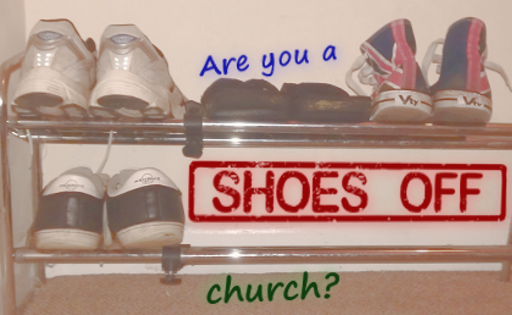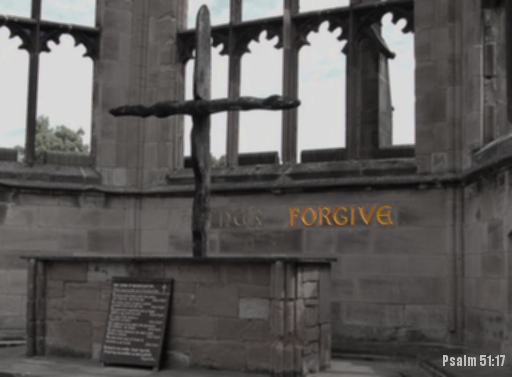Baptism is still considered by most denominations to be a very important moment; yet there is relatively little teaching about it in churches and much confusion about it still abounds. Here are 9 myths about baptism

Photo by ucb, reused under CC license
1. You have to be ready to be baptised.
Why is it a myth? Because we couldn’t get ourselves ready. We couldn’t make ourselves acceptable in the sight of God. The idea that you’d have to be a shining example of good behaviour before being allowed to get baptised, is just wrong.
So, you might tell me, “ah, but you have to know what you’re getting yourself into before you can make the decision”. A bit like knowing whom you’re marrying. And whilst there is some truth in that, the argument can be pushed to the extreme: why not complete a doctorate in theology before making the decision?
Within the Anglican church, a simple set of six questions is asked to candidates for adult baptism. They’re simple enough and they are most definitely sufficient. I would even argue they ask too much, in too theologically loaded phrasing, and that the word “candidate” in that setting is incredibly misused (as if you could fail at baptism!)
We love, because God loved us first. That love is not conditional upon our actions, our theological knowledge, or any such thing. The same goes for baptism: as soon as we are able to recognise that love and where it comes from, we are as ready for baptism as we’re going to be.
2. Once you’re baptised, you stop sinning.
If only! Baptism is no magic wand. It is not something that turns you instantly from a sinner into a saint. It marks symbolically the start of the sanctification process, the death to the old self and the birth to the new self. But being baptised does not make us perfect. Church remains a hospital for sinners rather than a museum of saints.
Crucially, though, thinking that sin stops after baptism reinforces the (wrong) idea that you have to be ready for baptism: ready to give up sin, and strong enough to do so. But all that is asked is a willingness to do so – to turn to Christ and to realise that we have something better to hold on to.
3. Baptism is, first and foremost, an opportunity for evangelism.
I have heard that one before, and more than once. Some churches encourage this by getting the baptised-to-be to give a testimony of how they came to Christ at the baptismal service. It is true that baptism is a public affirmation of a private change.Yet imagine the same sentence with “baptism” replaced by “marriage”. Or “Christmas”. It would sound weird to treat either of these occasions as primarily opportunities for evangelism. It is true that they are moments when unchurched people may attend a service; and as such they do constitute opportunities for evangelism. But that’s not what they are about.
Just so with baptism. Leaving the God-directed part of baptism, the commitment to God out of it, makes baptism a hollow shell.
4. Baptism is a private affair.
Faith can be seen as a private affair in secular countries. On top of that, baptism is something very intimate, and personal: it can be seen as either the start or a significant stage at least in a very personal journey. Therefore, some could argue, baptism should remain between me and God, and whosoever is baptising me.
If baptism were private, though, it would be a private affirmation of a private change: in other terms, it would simply be a validation of what has already happened. A bit like receiving your degree certificate through the post. Is that validation necessary, though? Considering baptism as something private is both giving the event too much importance, and the process of sanctification too little.
5. If it’s not full immersion, it doesn’t count.
A lot of modern, evangelical churches insist on baptism being full immersion. I find that quite ironic, given the same churches’ reticence to follow set liturgy, but are so deadly intent on doing other things the “proper way”. Yes, βαπτίζω, whence we get the word baptism, does mean “immerse”. And yes, symbolically, full immersion implies the entire person, body and mind; and therefore reflects the fullness of the commitment made to Christ in baptism. And refusing full immersion for the sake of keeping your sinning hand from this commitment denotes a lack of willingness to submit to Christ altogether!
But while full immersion should not be shunned, it should not necessarily be insisted on: the apostles gave specific guidance on baptism, which recognises baptism by affusion as a proper way to proceed, and suggests other parts to baptism which aren’t really adhered to; and – most importantly, what is it supposed to count for?
6. If it’s not said with the proper words or by the right person, it doesn’t count.
This is the opposite end of the low/high-church spectrum. There is an authorised liturgy for baptisms in the Church of England – but this is more for the sake of unity than on theological grounds (I hope!). After all, in all that, the same as above applies: what is it supposed to count for?
7. Baptism is not really important, so it doesn’t matter whether you get baptised or not.
This is a tough one. If baptism is not what you get saved by, why the hell should you get baptised? After all, it’s not like you’re going to stop sinning afterwards…
While you’re at it, why should you take communion? Or worship?
And it is true – some denominations do not practise baptism. But then the question comes up: why did Jesus get baptised? What was the point, other than showing us the way, and marking his acceptance by his Father?
Baptism is a mark of submission, it is a step forward, an important stage in a journey – and a public commitment to which we can be held to account. That, in itself, makes baptism important – without even needing to use scripture as back-up.
8. Baptism is so important that if you don’t get baptised, you’ll rot in hell. Therefore, babies should be baptised.
Again at the opposite end of the spectrum, some denominations hold that baptism is necessary for salvation; and therefore baptise babies just to make sure they will make their way to heaven. Yet grace, not baptism, is what saves us. And that grace is through faith, not through baptism. (And, in any case, those who are saved were predestined… what? :-P )
9. Infant baptism is an abomination/plainly repugnant to the Bible
While infant baptism seems to suggest that salvation is obtained through reception of sacraments, it is not necessarily the theology behind the practice. Baptism denotes more than a one-way process where an individual declares their informed decision to follow Christ. It also marks a welcome into the Christian church; and there is no reason to withhold that welcome from children. How Jesus deals with children goes a long way to show that.
What are your thoughts? How do you see baptism?





